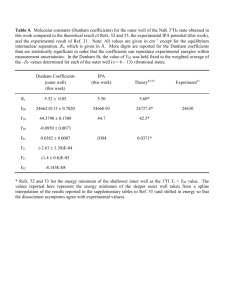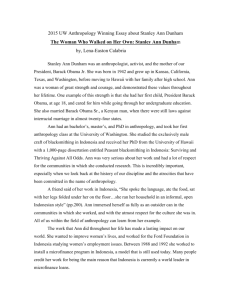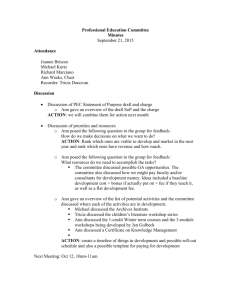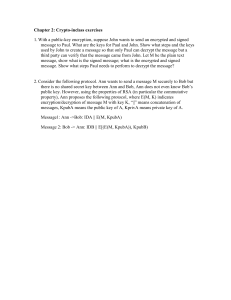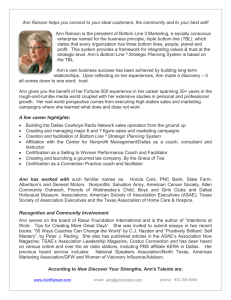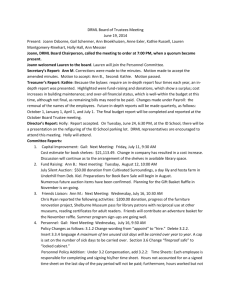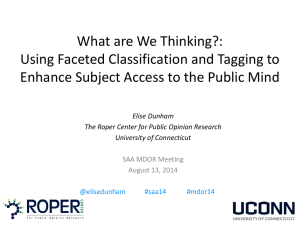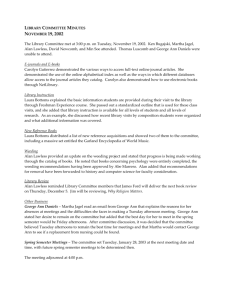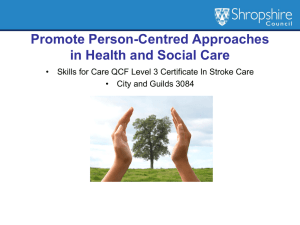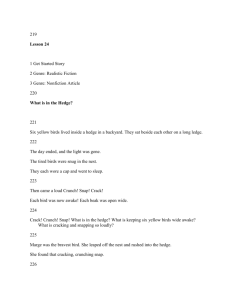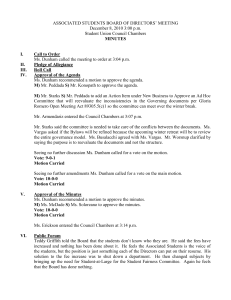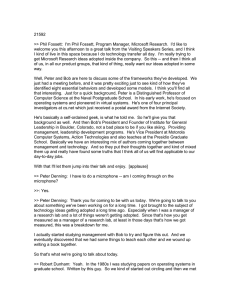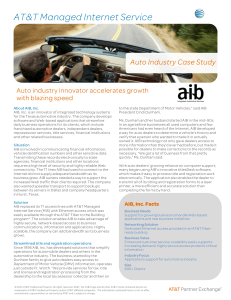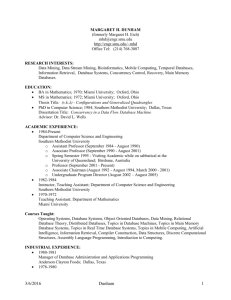Rasan Cherala`s essay - Stanley Ann Dunham Fund
advertisement
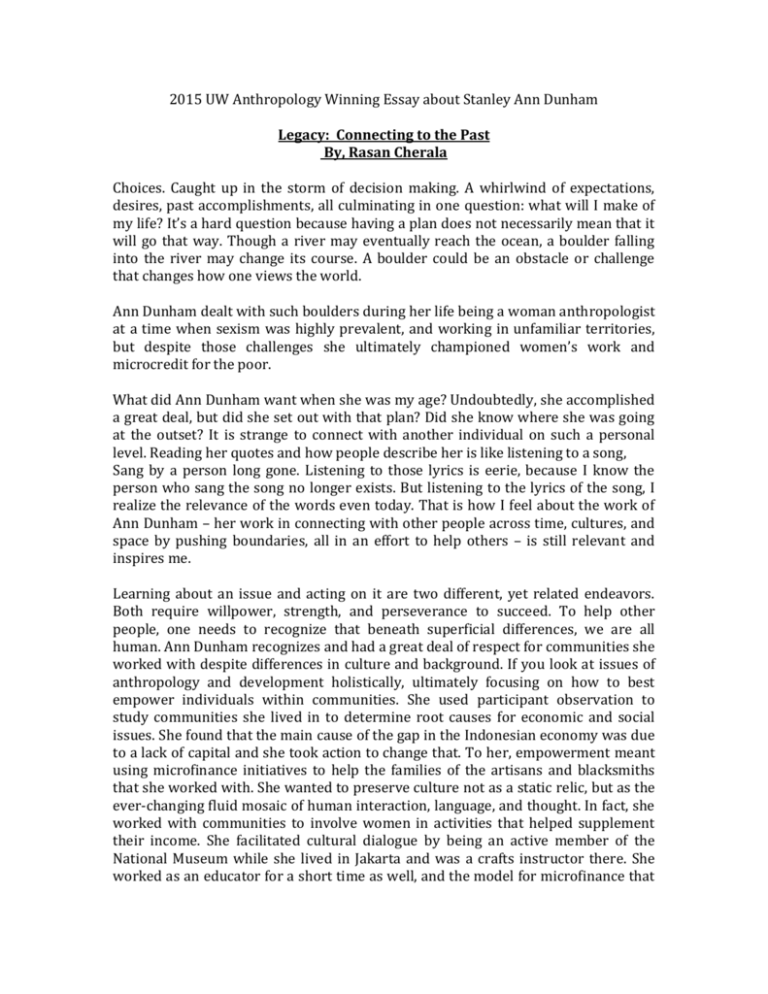
2015 UW Anthropology Winning Essay about Stanley Ann Dunham Legacy: Connecting to the Past By, Rasan Cherala Choices. Caught up in the storm of decision making. A whirlwind of expectations, desires, past accomplishments, all culminating in one question: what will I make of my life? It’s a hard question because having a plan does not necessarily mean that it will go that way. Though a river may eventually reach the ocean, a boulder falling into the river may change its course. A boulder could be an obstacle or challenge that changes how one views the world. Ann Dunham dealt with such boulders during her life being a woman anthropologist at a time when sexism was highly prevalent, and working in unfamiliar territories, but despite those challenges she ultimately championed women’s work and microcredit for the poor. What did Ann Dunham want when she was my age? Undoubtedly, she accomplished a great deal, but did she set out with that plan? Did she know where she was going at the outset? It is strange to connect with another individual on such a personal level. Reading her quotes and how people describe her is like listening to a song, Sang by a person long gone. Listening to those lyrics is eerie, because I know the person who sang the song no longer exists. But listening to the lyrics of the song, I realize the relevance of the words even today. That is how I feel about the work of Ann Dunham – her work in connecting with other people across time, cultures, and space by pushing boundaries, all in an effort to help others – is still relevant and inspires me. Learning about an issue and acting on it are two different, yet related endeavors. Both require willpower, strength, and perseverance to succeed. To help other people, one needs to recognize that beneath superficial differences, we are all human. Ann Dunham recognizes and had a great deal of respect for communities she worked with despite differences in culture and background. If you look at issues of anthropology and development holistically, ultimately focusing on how to best empower individuals within communities. She used participant observation to study communities she lived in to determine root causes for economic and social issues. She found that the main cause of the gap in the Indonesian economy was due to a lack of capital and she took action to change that. To her, empowerment meant using microfinance initiatives to help the families of the artisans and blacksmiths that she worked with. She wanted to preserve culture not as a static relic, but as the ever-changing fluid mosaic of human interaction, language, and thought. In fact, she worked with communities to involve women in activities that helped supplement their income. She facilitated cultural dialogue by being an active member of the National Museum while she lived in Jakarta and was a crafts instructor there. She worked as an educator for a short time as well, and the model for microfinance that she developed while working at the Ford Foundation is still the standard in Indonesia today. Ann Dunham was a woman of strong convictions and a trailblazer who used her knowledge to help people in need. She followed her interest and her passion, was caring mother to her children, and looked for the best in other people. As an anthropologist, she studied how people in various regions of the world lived, an helped them rise out of situations of limited resources by working as a community organizer and educator. I admire her because she believed in a cause and fought for it on multiple levels, partnering with many people all while overcoming obstacles along the way. Her life demonstrates that a remarkable amount of work can be done by a single, committed individual. Her story gives me hope that one day I will be able to work with communities in need to help alleviate poverty and shed light on social and economic issues. I want to connect to people and help them, ultimately leaving behind a legacy of knowledge and relationships that people can use as a stepping stone to better the human condition.
